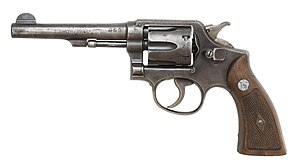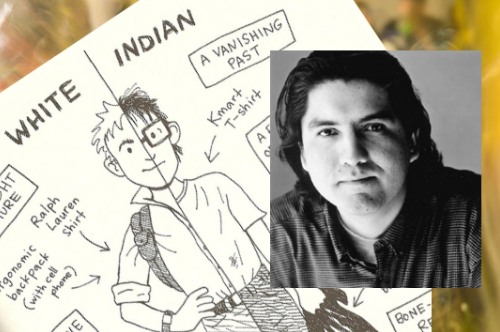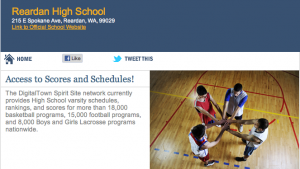Chapters 1-5: Nabil Boschman
“I think the world is a series of broken dams and floods, and my cartoons are tiny little lifeboats.” (Alexie 6)
The metaphor in this passage is the summation of a couple ideas presented on the previous page. The narrator thinks that the only way to become rich and get off the reserve is by becoming an artist because all of the rich “brown” people that have been represented to him are artists. In this way his cartoons—his art—are little lifeboats taking him away from the reserve and poverty.
Additionally, since the narrator has trouble communicating with people he appreciates the universal language of imagery. In this way his little lifeboats connect him to other people as well.
“…I can’t blame my parents for our poverty because my mother and father are the twin suns around which I orbit and my world would EXPLODE without them.” (Alexie 11)
I chose this passage firstly because the metaphor used to describe his parents is beautiful. Secondly this metaphor is significant because it explains the narrator’s relationship with his parents to us somewhat. As twin suns, we get the impression that they are forever linked, inseparable—possibly that they provide a loving family for him even though he describes them as drunks. Also the image of him orbiting these twin suns sets up the dependance he has on them being young and having special needs that need attending.
“…we reservation Indians don’t get to realize our dreams. We don’t get those chances. Or choices. We’re just poor. That’s all we are.” (Alexie 12)
I chose this passage because of the emotional impact firstly and secondly because this discussion of dreams is perhaps setting up a theme of the novel. “Indian’s don’t get to realize our dreams” would be a powerful theme statement if it turns out to be the case.
“‘Okay, then,’” he said and leaned closer to me because he didn’t even want the trees to hear what he was going to say. “‘You have to leave this reservation.’” (Alexie 42)
This passage contains what Joseph Campbell, author of Hero With a Thousand Faces, would call the call to adventure. It is a moment shared in all hero narratives in which the hero is offered a choice between staying where he is or finding adventure; leaving things the way they are or changing the status quo. The passage is made more powerful by its conspiratorial nature—it is whispered so not even the trees will hear.
“‘If you stay on this rez,’ Mr. P said, ‘they’re going to kill you. I’m going to kill you. We’re all going to kill you. You can’t fight us forever.’” (Alexie 43)
In this passage the real danger becomes clear: life on the rez is going to kill him. Mr. P is referring to the death of his spirit, not his body. Life on the reservation would be oppressive for anyone, but for someone who is already at such a disadvantage as the narrator, it would be insufferable.
Sara: Line Illuminator: 6-10
Chapter 6: “I mean, they’ve always known that I’m weird and ambitious, so maybe they expect me to do the weirdest things possible. And going to Reardan is truly a strange idea. But it isn’t weird that my parents so quickly agreed with my plans. They want a better life for my sister and me. My sister is running away to get lost, but I am running away because I want to find something.” (46)
This line is significant because it compares Junior with his sister and shows the resilience of our protagonist. It also shows how the support of his parents is so important to his ability to leave the reservation.
Chapter 7: “. . . Rowdy started crying too, and he hated that. He wiped his eyes, stared at his wet hand, and screamed. I’m sure that everybody on the rez heard that scream. It was the worst thing I’d every heard. It was pain, pure pain.” (52)
I chose this line because the image of Rowdy’s primal scream has stayed with me. And I think many people can relate to the pain of losing someone we love, even if they are still alive and close by.
Chapter 8: “The Unofficial and Unwritten (but you better follow them or you’re going to get beaten twice as hard) Spokane Indian Rules of Fisticuffs.” (61) Read the rules. What is the significance of the font looking like the writing on a “Wanted” poster from a Western?
What particularly struck me about the rules was the intergenerational linking between the fighting, whereby if my father/mother/sister/brother was fighting with you, then I would have to fight with their father/mother/sister/brother. And how tiresome it would be to be worried about all of these relations. I also thought it was extremely interesting that the font looked like a Wanted poster. This brings up all the ideas of outlaws, the cowboy, and the independent American.
Chapter 9: “You see, you men and boys are like packs of wild dogs. This giant boy is the alpha male of the school, and you’re the new dog, so he pushed you around a bit to see how tough you are.” (68)
Junior’s grandmother is giving him good advice in this quote and I think it’s interesting to see how Junior navigates this entirely new culture that he’s living in. And I think we can all relate to being in new situations where we don’t know how to behave.
Chapter 10: “She was out of my league, and even though I was only twelve, I knew that I’d be one of those guys who always fell in love with the unreachable, ungettable, and uninterested.”
I like this quote because in some ways it speaks to Junior’s hopes and dreams, and even though he may not be able to achieve all of his dreams, he keeps going after them.
CHAPTERS 20-26 – Meena-
Drunk for a week, my father must have really wanted to spend those last five dollars. Shoot, you can buy a bottle of the worst whiskey for five dollars. He could have spent that five bucks and stayed drunk for another day or two. But he saved it for me. pg. 151
I selected this passage because it demonstrates Junior’s fathers love for his son. Even though the family lives in poverty, and the father is a drunk, there is still some attempt to make ends meet and be there for each other. Junior thanks his dad for the Christmas gift of five dollars, and to him it means much more than the monetary value. For once, his father did not choose alcohol over his family and decided to instead save the money for Junior as his Christmas gift. This can also symbolize hope for Junior, that maybe his father is able to fight his own inner demons and not succumb to being a drunkard every day, instead he was able to fight the urge to buy another bottle of whiskey and blow the money. Junior’s father’s actions demonstrate his will power and potentially foreshadow some future change of overcoming his addictions.

I’ve learned that the worst thing a parent can do is ignore their children. Pg. 153
For me this line speaks about Junior’s realization that even though he lives in poverty and his parents are alcoholics, some classmates actually have it worse off. Junior is starting to understand that a beautiful mansion and nice clothes does not denote good parenting necessarily. He sees how Penelope purposely tries to anger her father, her struggle with bulimia, and how a girl from privilege can still be unhappy and lonely. Junior is starting to understand that a family’s genuine love and support is more priceless than superficial material items and even though his family may not be able to provide him with daily transportation to school, they are still proud of him for choosing to attend Reardan and challenge himself. Junior’s parents understand the amount of courage it required from Junior to make that big decision and take action.
My grandmother’s last act on earth was a call for forgiveness, love, and tolerance. Pg. 157
This line demonstrates the true character of Junior’s grandmother. Junior’s grandmother was struck down and killed by a drunk driver from the reservation, and her last words to the surgeon were ‘forgive him’, in reference to the man who killed her. Her actions display great wisdom beyond many people’s comprehension and also served to help her family forgive the man who took her life. She wanted her family to not be in grief and battle the feelings of hate and revenge, but instead to accept that mistakes happen and to be able to go above and beyond and forgive someone.
When Bobby was sober enough to realize what he’d done, he could only call Eugene’s name over and over, as if that would somehow bring him back. Pg. 171
This unfortunate accident displays the negative consequences of alcohol in the First Nations community. Bobby who was drunk to a point of not being able to understand what he was doing, ultimately ended up taking his friends life. Only after becoming sober did he realize the magnitude of his actions. Unable to deal with the reality of his situation and to forgive himself, he ends up taking his own life as well. This incident makes Junior realize the vicious cycle of alcoholism and death within his reservation and culture. He begins to see the reservation as a jail with death as the only outcome.

The world is only broken into two tribes: The people who are assholes and the people who are not. Pg. 176.
This line appears after the class demonstration of Junior’s peers to their teacher after she mocks Junior for missing school. For the first time since Junior has been at Reardan, he realizes that not all ‘white’ people hate and discriminate against the ‘Indians’. His classmates were able to empathise with Junior after the loss of his grandmother and Eugene, they understood grief, and where Junior was coming from. Junior’s classmates were able to see past his skin colour and culture; they saw him for who he truly was, someone who felt pain just like them.
Chapter 27-29: Gloria
1. “[Mary] went searching for her dreams, and she didn’t find them, but she made the attempt. And I was making the attempt, too. And maybe it would kill me too, but I knew that staying on the rez would have killed me, too” (216).
I think that this passage speaks to adolescents who are afraid of making attempts and taking risks. Mary died too early, but at least she had a happier life after she moved to Montana with her husband. She realized her dream, romantic life. Junior also had to face various forms of adversity such as racism, loneliness, and broken friendship. Nevertheless, he did not back off, even when he wanted to give up everything. Since his arrive at Reardan, Junior has made many attempts that he would have never made if he were in the reservation. He punched Roger in the face, corrects Mr. Dodge, and asks Gordy to become his friend. After reading this book, I hope that other adolescents will realize the importance of making attempts for their dreams. I hope that they will learn that courage and persistence are crucial in realizing one’s dream.
2. “I realized that, sure, I was a Spokane Indian. I belonged to that tribe. But I also belonged to the tribe of American immigrants. And to the tribe of basketball players. And to the tribe of bookworms” (217).
I chose this passage because I found the term, “tribe,” interesting. Junior could have the word, ‘group,’ but he did not; he chose a word that is associated with his culture. I have thought about why the word was interesting to me, and I realized that it connotes a stronger sense of having strong bonds among its members than the word, “group”. Asking students to list tribes they belong to and share them among them will be an interesting activity which will give them an opportunity to connect the novel and their life and learn more about their peers and even themselves.
3. “When we were little, like ten years old, Rowdy and I climbed that sucker. … Other days, yeah, I’m terrified of falling. No matter how old I get, I think I’m always going to be scared of falling. But I wasn’t scared of gravity on that day” (220).
This is another passage about courage. It suggests that some decisions may look reckless and dangerous, but as long as they are meaningful and lead to a brighter future, one should take risk. Climbing the tall pine tree in the rez must have been an outrageous thing to do, especially at that young age, but I believe that this incident has bestowed courage upon Junior and helped him overcome the challenges he had to face in both communities.
4. Rowdy says, “I don’t think Indians are nomadic anymore. Most Indians, anyway. … Hardly anybody on this rez is nomadic. Except for you. You’re the nomadic one. … You’re going to keep moving all over the world in search of food and water and grazing land. That’s pretty cool” (230).
This comment was interesting because I did not know that indigenous people used to be nomadic. I also agree to Rowdy’s comment that Junior is a nomad. This passage is significant because students will learn that sometimes they need to leave their community or any comfort zone that hinders them from realizing their dream. Also, this passage reveals that Rowdy acknowledges Junior’s courage/bravery and the wonderfulness of his life. Rowdy’s compliment suggests that true friends accept and appreciate differences between them.
5. “I hoped and prayed that I would someday forgive myself for leaving them” (230).
This is an interesting comment for Junior because it implies that he has been feeling guilty about transferring to a white community even though the transfer was inevitable in order for him to succeed in life. Most importantly, Junior is not the cause of Mary’s death. Nevertheless, since Rowdy is his best friend, Junior must have taken Rowdy’s accusation that Junior is to be blamed for Mary’s death very seriously. Personally, I think that he is being too harsh on himself, though, and I feel sorry for his suffering from such a thought. This passage suggests that words can be used as an extremely powerful tool; depending on what we hear, we experience psychological healing or damage. Especially, hurtful words can haunts others, as we have witnessed in Junior’s writing. Ultimately, this passage proposes that one must be cautious about what he/she says to the people close to them because the closer the relationship, the greater the harm one would receive from hurtful sayings.



One Comment
This is really helpful and it says alot about the Book.